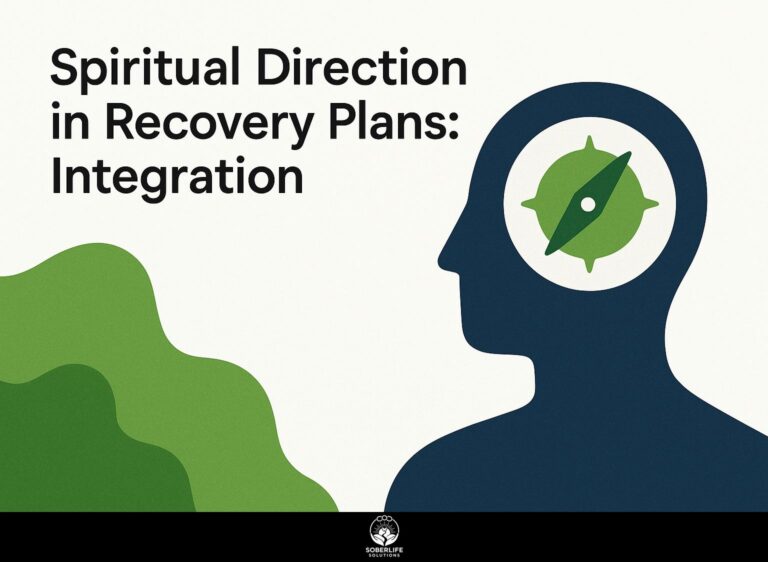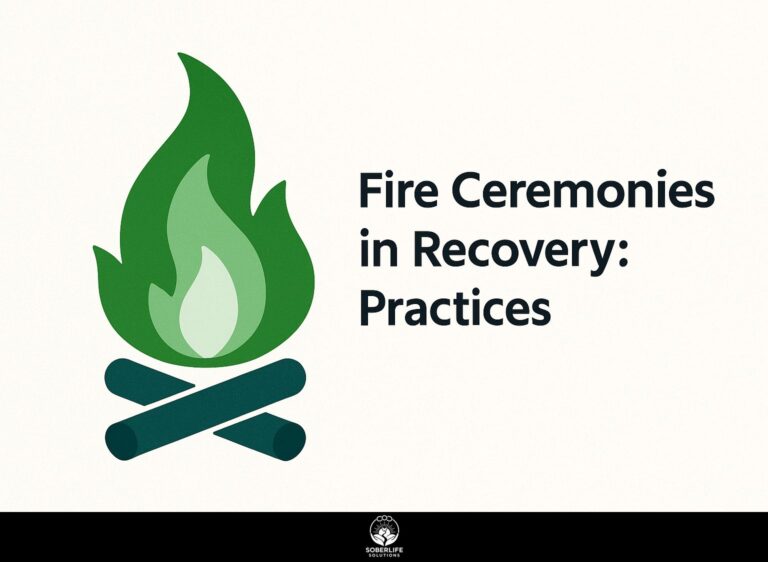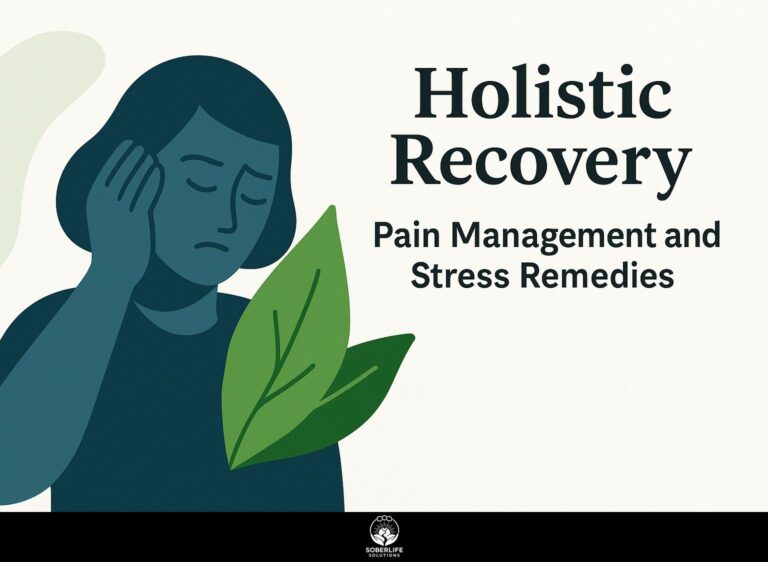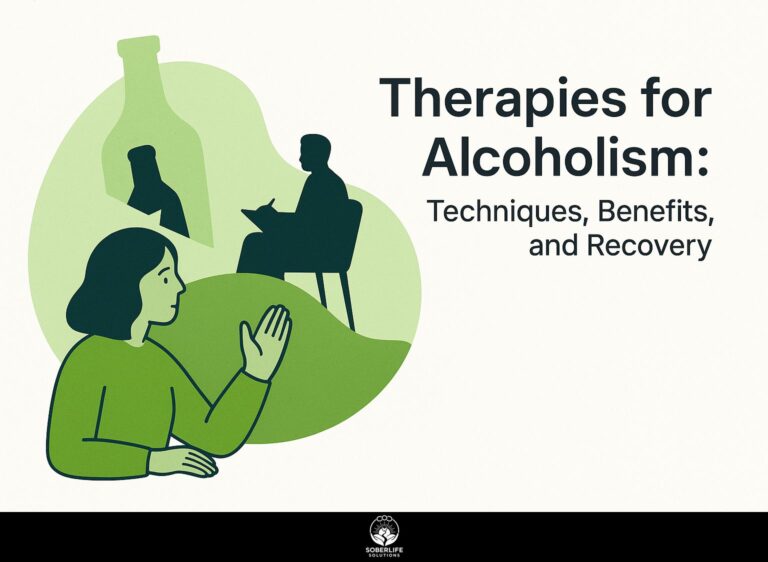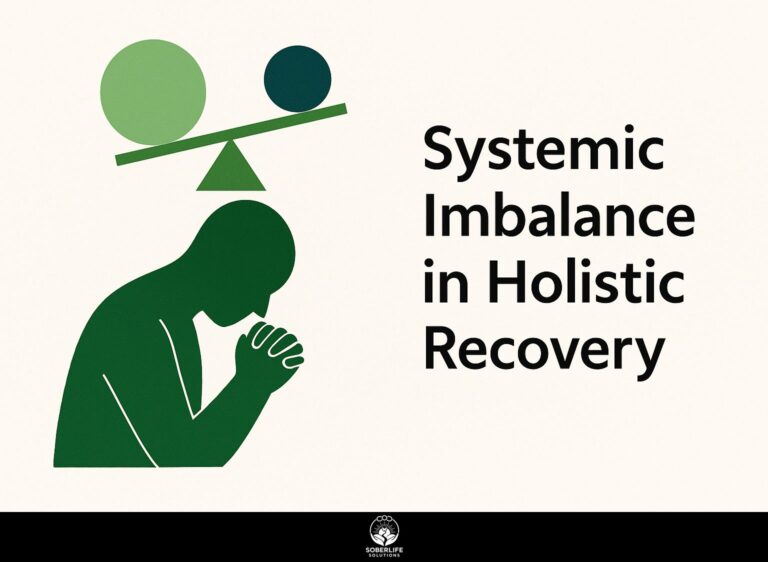Emotional Health: Coping Mechanisms for Addiction Recovery
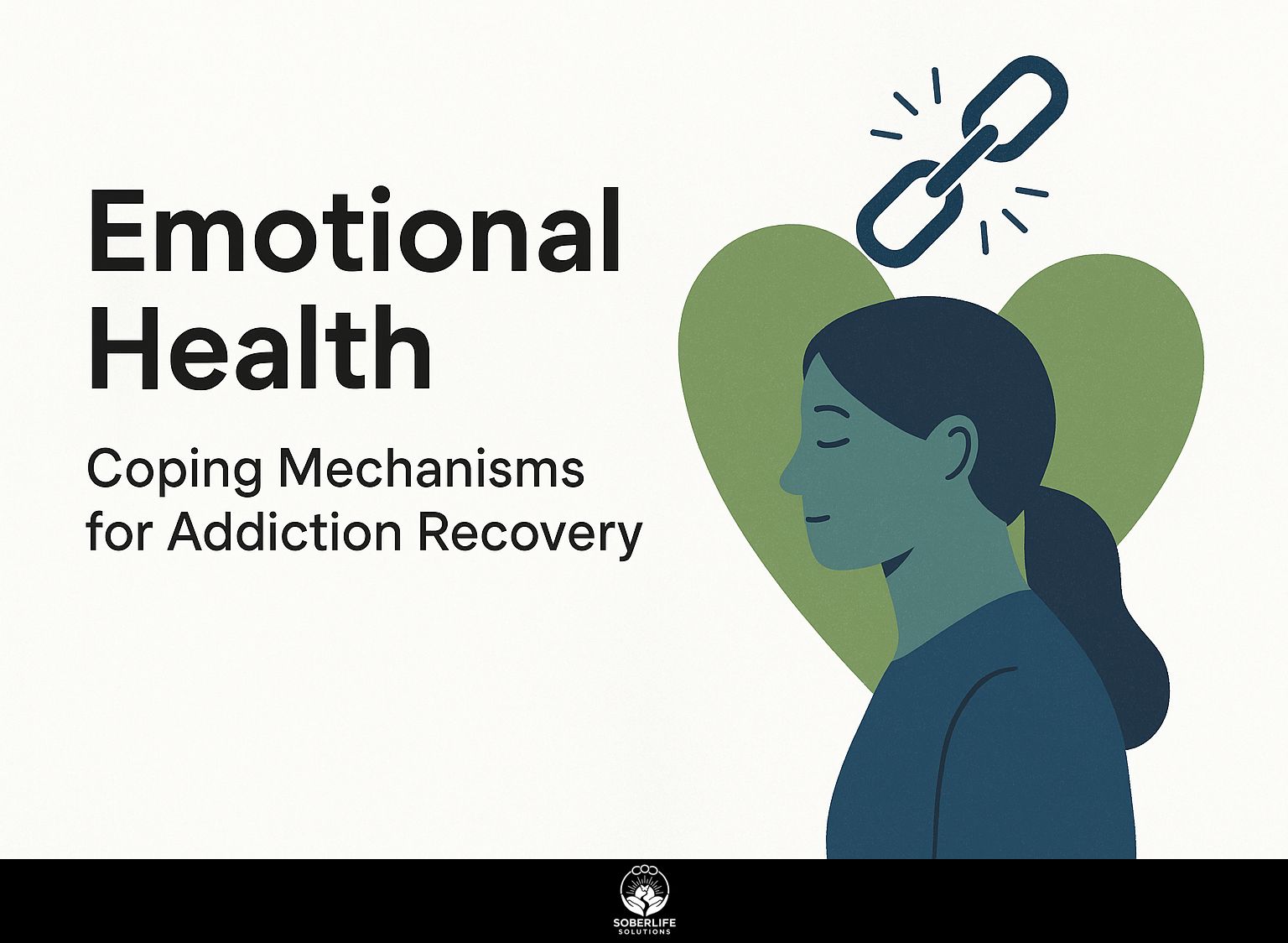
Overcoming drug addiction involves strong feelings and needs practical ways to handle them. Knowing how emotional health affects recovery is important for long-term success. In this article, we discuss useful methods based on qualitative research to improve stress management and emotional strength. Learn how identifying emotional triggers and using healthy coping methods can lead to a more satisfying life without addiction. Let’s look at the important link between feelings and getting better.
Key Takeaways:
Understanding Addiction
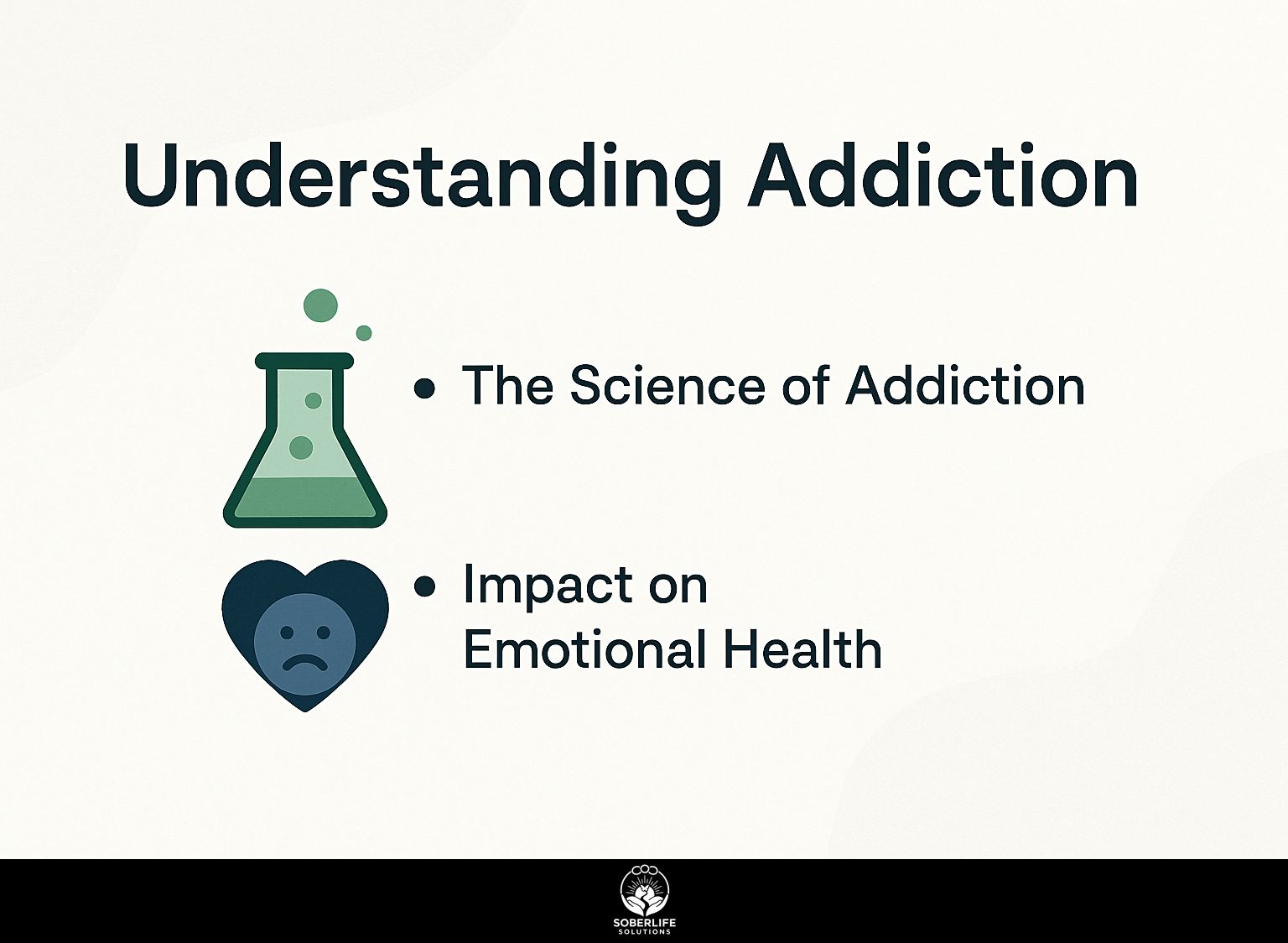
Addiction is a difficult brain condition marked by uncontrolled drug use, affecting mental health and emotions. For those looking to improve their recovery process, building healthy habits can be crucial; if interested, you might find our step-by-step guide to building habits for addiction recovery particularly helpful.
The Science of Addiction
Addiction involves changes in brain structure and function, reinforcing compulsive drug use despite adverse consequences, impacting over 22 million Americans annually.
Addiction interferes with the brain’s reward system by causing the release of dopamine, a chemical in the brain associated with feelings of pleasure and encouragement.
Research by the CDC indicates that increased dopamine levels from drugs such as opioids or stimulants can cause long-lasting alterations in brain circuits. For example, people might start using drugs to feel better but later find less pleasure in normal activities. For an in-depth understanding of these alterations, The Lancet provides a comprehensive neurocircuitry analysis of addiction, highlighting critical aspects of its impact on the brain.
Statistics indicate that nearly 20% of adults will face a substance use disorder in their lifetime, highlighting the pervasive nature of this issue.
Impact on Emotional Health
Struggling with addiction can cause serious mental health problems, raising the likelihood of anxiety and depression in half of those who experience addiction.
Studies show that addiction often distorts emotional regulation, leading to heightened irritability and mood swings. For example, someone dealing with alcohol addiction might feel very ashamed, which can worsen their depression and negatively impact their friendships and job security. According to HelpGuide, the intertwining of substance abuse and mental health issues, known as dual diagnosis, is a critical area of focus in treatment.
Recovery outcomes can improve significantly through therapies like Cognitive Behavioral Therapy (CBT) and support groups. These methods help people handle emotions better, restore relationships, and create ways to deal with stress, which are important for lasting recovery and better overall health.
The Importance of Emotional Health
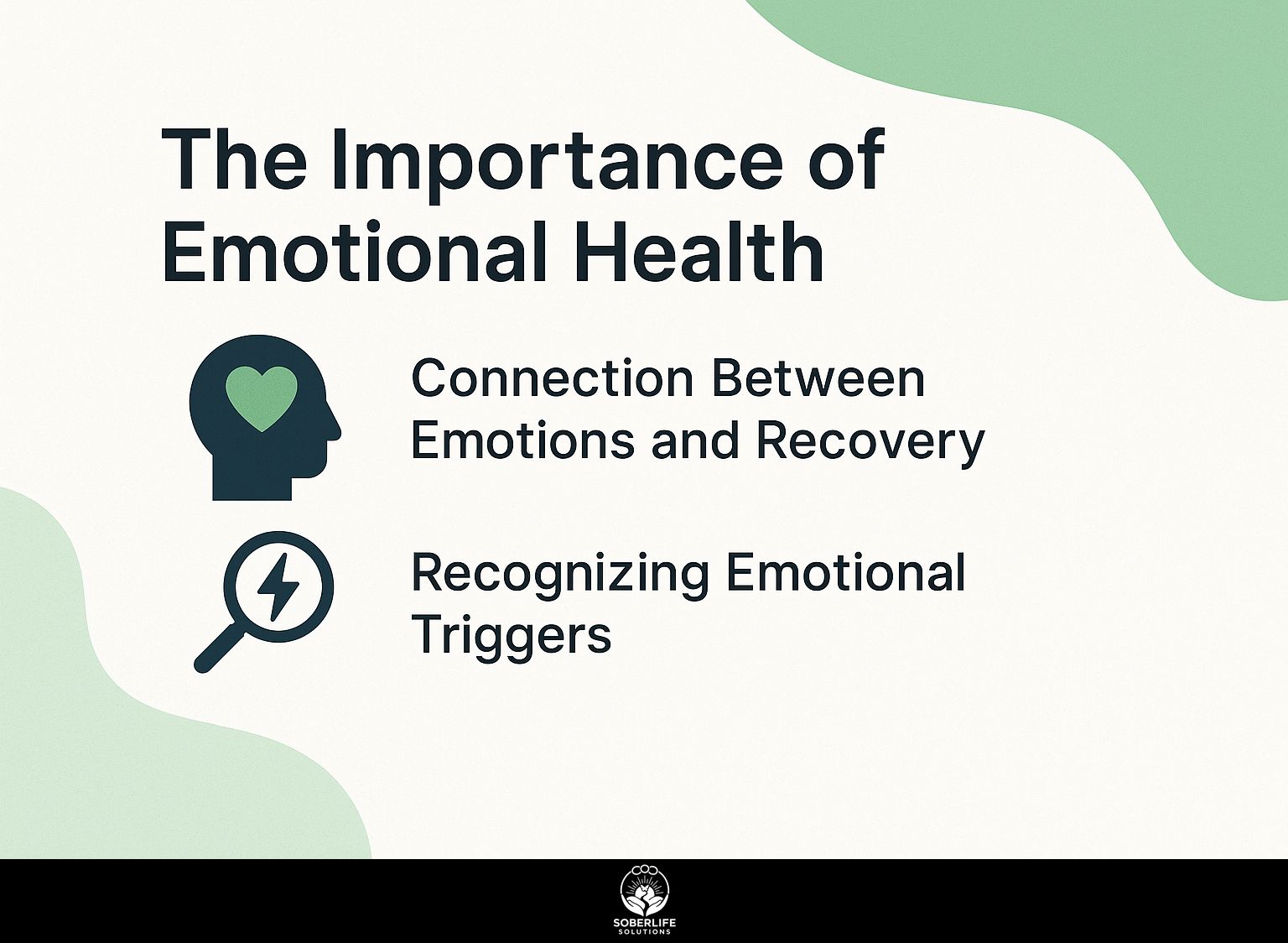
Emotional health is important in recovery, affecting how well someone can handle stress and stay sober. To build a strong foundation for recovery, our step-by-step guide on building habits for addiction recovery offers valuable insights and practical advice.
Connection Between Emotions and Recovery
Studies show that managing emotions is important for maintaining recovery, with a 40% reduction in relapse rates for those who use emotional support techniques.
Therapeutic methods such as cognitive-behavioral therapy (CBT) improve emotional well-being by helping people recognize what causes stress and change harmful thinking patterns.
Writing in a journal is a practical way to think about your feelings and experiences, helping you become more aware of yourself.
Group therapy can also provide a support network, emphasizing shared experiences that reinforce coping strategies. Notably, Frontiers in Psychology highlights how emotional dysregulation often plays a critical role in addiction, underscoring the importance of shared therapeutic approaches.
Using these practices in daily routines greatly helps people in their recovery process, builds strength, and lowers the chance of relapse over time.
Recognizing Emotional Triggers
Recognizing emotional triggers can lower the chance of relapse by 30%, helping people handle stress better during recovery.
To recognize and document emotional triggers effectively, consider using a journaling approach. Set aside time each day to reflect on your emotional experiences.
For example, write about moments that provoked strong reactions, detailing the context, emotions felt, and any physical sensations. Talking with a therapist can help find hidden causes through structured conversations.
Techniques such as Cognitive Behavioral Therapy (CBT) can also teach you to reframe negative thoughts associated with these triggers. By being aware of your feelings like this, you can handle difficult situations more effectively.
Coping Mechanisms Overview
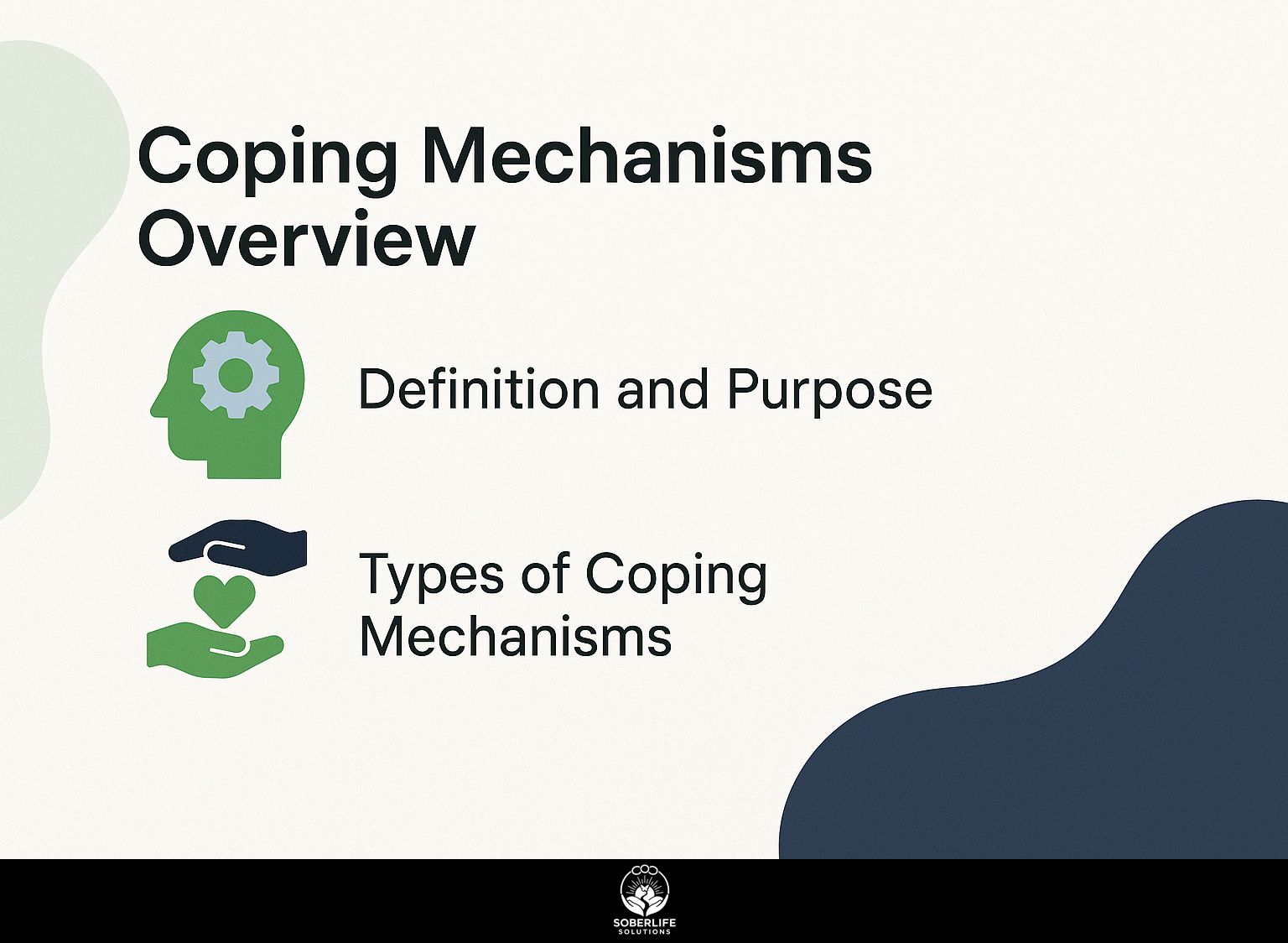
Coping mechanisms are techniques used to handle stress and feelings, important for dealing with the difficulties of overcoming addiction. Implementing effective strategies can also help in preventing alcohol relapse through mindfulness and self-care, which are crucial elements in sustaining recovery.
Definition and Purpose
Coping mechanisms, defined as cognitive and behavioral strategies, help individuals mitigate the effects of emotional distress and stress, allowing for healthier responses.
There are various types of coping mechanisms, including problem-focused strategies that tackle the source of stress and emotion-focused strategies that help manage emotional responses.
For instance, practicing mindfulness can reduce anxiety by bringing awareness to the present moment, while time management tools like digital planners can help individuals feel more in control of their responsibilities.
Good coping skills help lower stress and build better therapeutic connections by encouraging trust and open communication, which improves treatment results.
Types of Coping Mechanisms
Coping methods are divided into helpful (positive) and unhelpful (negative), greatly affecting recovery outcomes.
Coping strategies that change with circumstances help maintain emotional well-being and strength. Examples include mindfulness meditation, which can reduce stress and anxiety by enhancing self-awareness, and physical activities like yoga or jogging that release endorphins.
Journaling is another effective tool, helping individuals process their emotions and reflect on experiences. However, using drugs or ignoring problems might give brief relief but can prevent long-term recovery.
It’s important to develop flexible strategies, as they help maintain long-term emotional health and strength when dealing with difficulties.
Healthy Coping Strategies
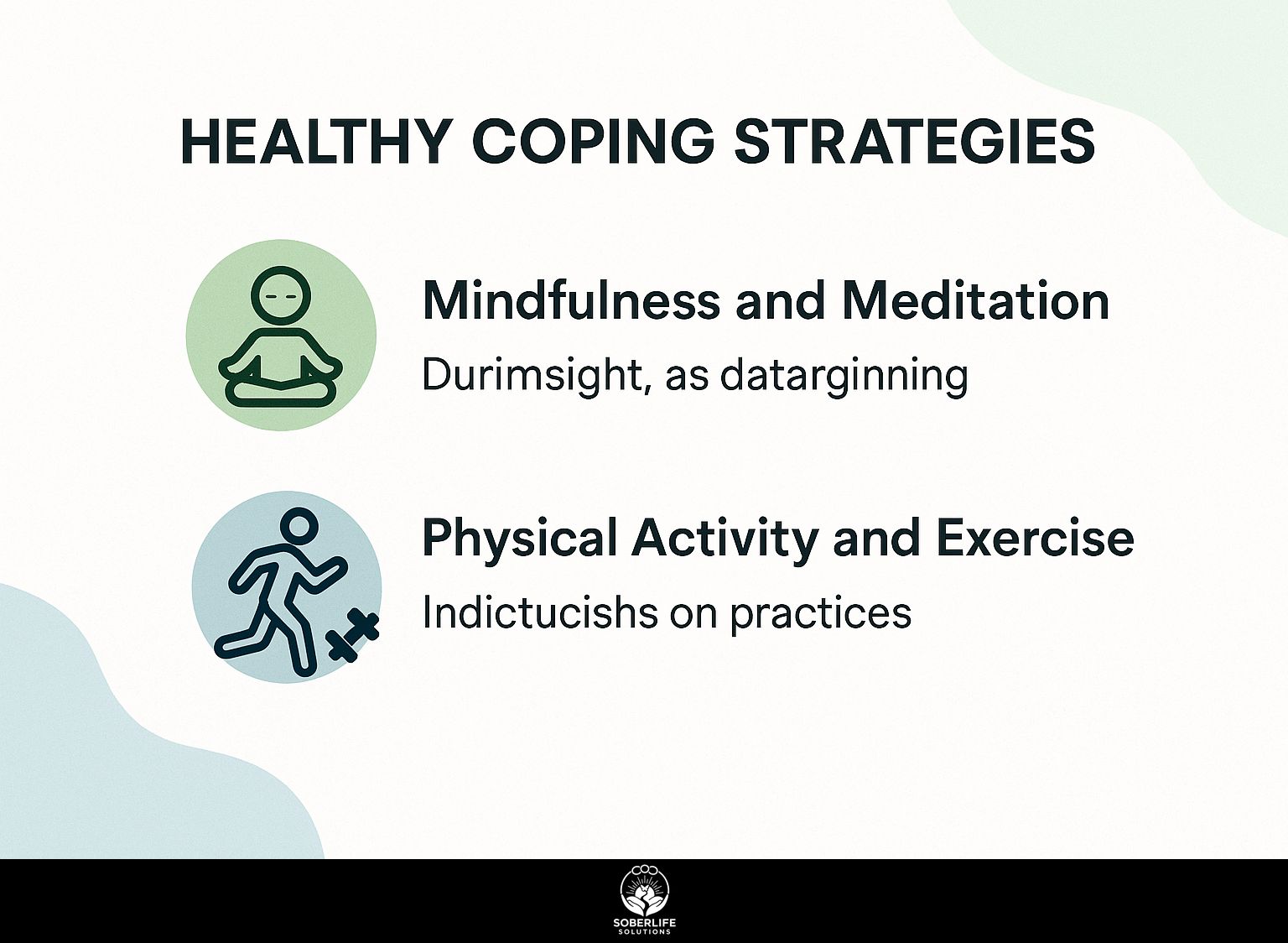
Using healthy coping methods can greatly improve recovery results, increasing emotional well-being by as much as 50%.
Mindfulness and Meditation
Research has shown that mindfulness and meditation can effectively lower anxiety and help people in recovery manage their emotions better, with studies finding a 30% decrease in stress levels.
To add mindfulness to your daily routine, begin with basic breathing exercises. Try inhaling deeply for four counts, holding for four, and exhaling slowly for six; repeat this for five minutes.
Think about trying apps such as Headspace or Calm, costing about $12.99 per month, that provide guided meditations specifically for dealing with anxiety.
Establishing a regular practice-like meditating for ten minutes each morning-can create lasting benefits, enhancing both resilience and emotional clarity in situations of stress.
Physical Activity and Exercise
Engaging in regular physical activity has been shown to improve mental health outcomes, with a 25% increase in emotional resilience noted in active individuals.
Adding activities such as running, yoga, and team sports can greatly improve emotional well-being.
For beginners, a simple 30-day exercise plan could include:
- Week 1 – brisk walking for 20 minutes daily;
- Week 2 – yoga sessions three times a week;
- Week 3 – introduce jogging, alternating with walking;
- Week 4 – join a local sports team for social engagement.
Research indicates that regular exercise can reduce withdrawal symptoms from anxiety and depression by nearly 40%. By staying consistent, individuals can notice improvements in mood and overall mental well-being.
Building a Support System
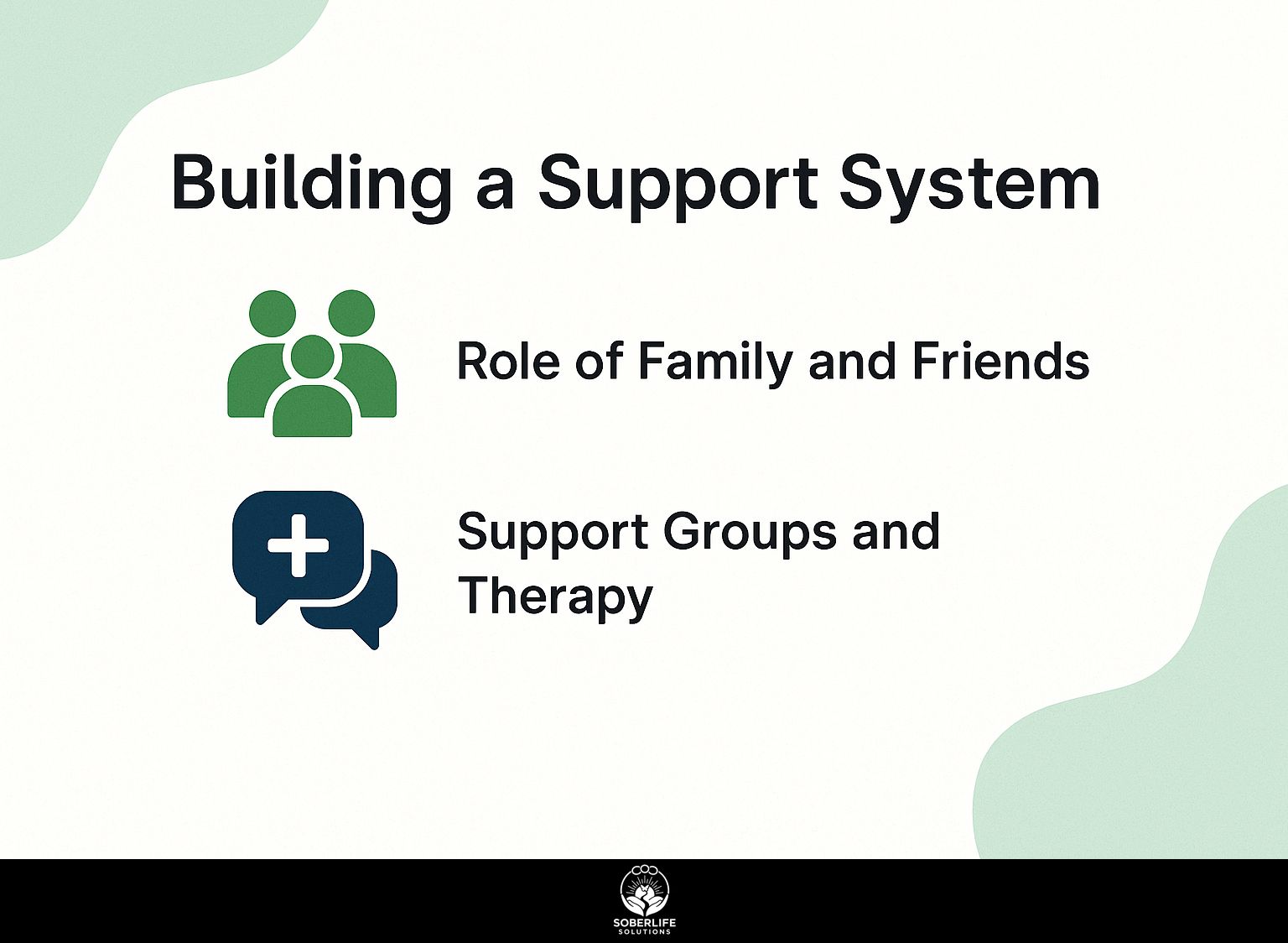
A solid support network is essential for recovery, greatly improving strength and emotional balance through shared life stories. This approach aligns with the principles outlined in our analysis of peer support groups, which highlight their definition, benefits, and activities crucial for emotional stability.
Role of Family and Friends
Getting help from family and friends during recovery can lower relapse rates by 40%, offering important emotional and practical help.
Clear communication is important for creating a helpful atmosphere. Families can establish regular check-ins, creating a safe space for open dialogue.
Techniques such as active listening-where participants fully concentrate, understand, respond, and remember-can improve these interactions.
Encouraging shared activities, like attending support meetings together or engaging in hobbies, helps strengthen bonds.
Using positive feedback, like recognizing achievements, encourages people in recovery and helps build a supportive group.
These strategies help people learn and work together during the recovery process.
Support Groups and Therapy
Joining groups like AA or attending therapy can increase recovery rates by 50% by aiding emotional recovery and providing coping strategies.
Two main types of support groups are peer-led and professionally facilitated.
Peer-led groups, like Alcoholics Anonymous (AA), provide a community where people can share their experiences and stay accountable. On the other hand, professionally led therapy, such as Cognitive Behavioral Therapy (CBT), offers structured approaches to address addiction.
A study by the National Institute on Drug Abuse found that individuals participating in such programs showed a 12-month sobriety rate of 40%. Combining these options can yield optimal results, addressing both emotional and psychological needs effectively.
Developing Emotional Resilience
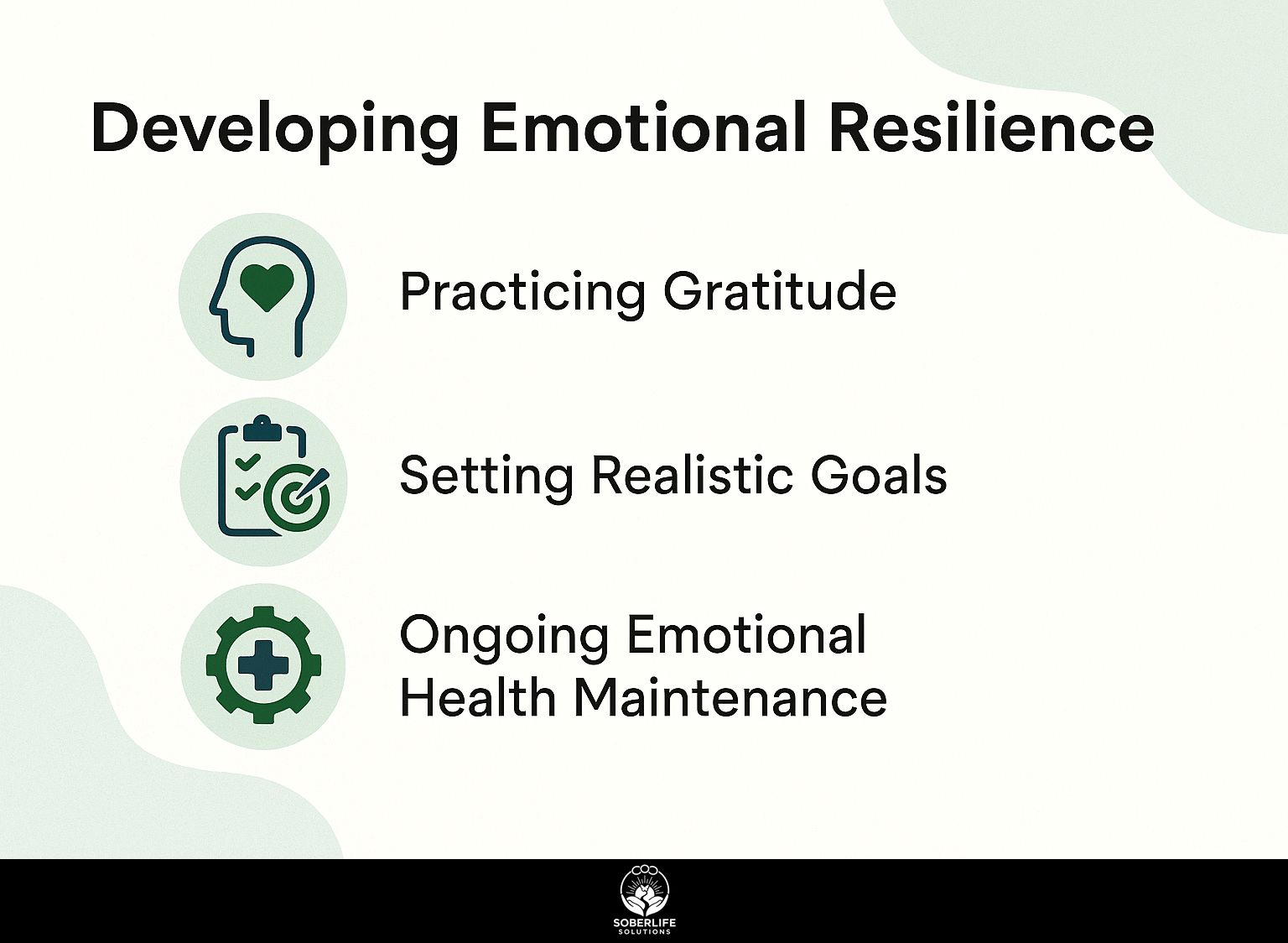
Building emotional strength is important for lasting recovery, as it helps reduce the chances of falling back and supports individual progress. Addressing emotional triggers can be a key component in this process (our guide to handling emotional triggers offers practical strategies for maintaining resilience).
Practicing Gratitude
Practicing gratitude can lead to a 23% increase in overall life satisfaction and emotional stability, aiding in the recovery process.
To bring gratitude into your daily life, try keeping a journal where you write down three things you are grateful for each day. Studies indicate that this simple practice can significantly reduce feelings of anxiety and depression.
Try practicing gratitude meditation, which involves focusing on positive aspects of your life for a few minutes each day. One participant in a qualitative study reported feeling more at peace and better equipped to face challenges after just a month of daily gratitude exercises, demonstrating their tangible benefits.
Setting Realistic Goals
Setting practical and attainable goals can increase motivation in recovery. Research indicates that people who focus on goals have a 30% higher success rate.
To set clear goals, use the SMART method. For instance, instead of saying, “I want to be sober,” specify it as, “I will attend two support group meetings per week for the next three months.”
Measure your progress by tracking your attendance. Make sure the goal is realistic by looking at your current schedule and how it fits with your recovery goals. Review your goals every month.
This clear method helps you stay responsible, leading to a better dedication to recovery.
Ongoing Emotional Health Maintenance
Regularly practicing coping strategies can sustain emotional health, with a 20% increased likelihood of long-term recovery success.
To effectively maintain emotional health, consider incorporating a few specific practices into your routine.
- Set up weekly meetings with support groups to talk about experiences. This social activity can help you feel more connected.
- Continuing therapy, whether in-person or via platforms like BetterHelp, helps to provide ongoing professional support.
- Prioritize self-care by setting aside time for activities that relax you, such as reading, meditation, or even engaging in hobbies.
Every clear step helps create a dependable approach to emotional well-being, personalized to your experiences.
Frequently Asked Questions
What are some effective coping mechanisms for addiction recovery?
Some helpful ways to deal with addiction recovery include mindfulness exercises, doing physical activities, getting help from a therapist or support group, and learning good communication skills.
How can emotional health impact addiction recovery?
Emotional well-being is important in overcoming addiction because people might turn to substances to handle challenging feelings. Improving emotional health can help prevent relapse and promote long-term recovery.
What role do coping mechanisms play in maintaining emotional health during addiction recovery?
Coping mechanisms are essential in maintaining emotional health during addiction recovery as they provide healthier ways to manage and express emotions, reducing the urge to turn to substances for relief.
What are some specific coping mechanisms for dealing with negative emotions during addiction recovery?
Some ways to handle negative feelings during addiction recovery include writing in a journal, doing deep breathing exercises, taking care of yourself, and getting help from family, friends, or a therapist.
How can individuals identify their personal triggers and develop coping mechanisms for them?
People can find out what sets off their emotions by thinking about past events and looking for recurring themes, talking to a therapist or joining a support group, and keeping a record of triggers in a journal. Coping mechanisms can then be developed through trial and error and self-reflection.
Can coping mechanisms for addiction recovery be used for other areas of emotional health?
Yes, coping mechanisms for addiction recovery can also be beneficial for managing emotions in other areas of life. Developing healthy coping skills can help with overall emotional well-being and can be applied to a variety of situations.

